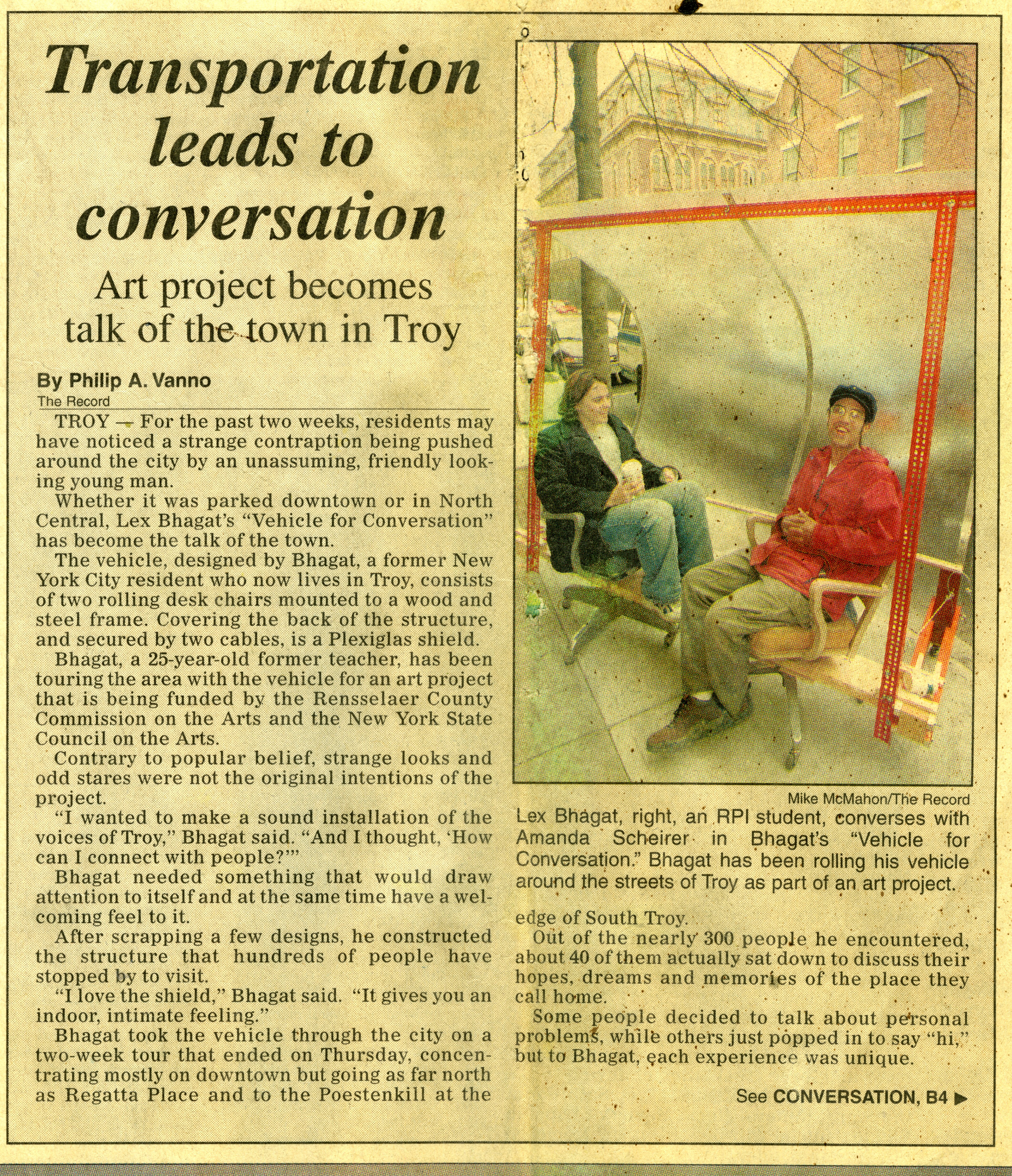
Troy Record. March, 2000

Freddy, are you interviewing me? || How about just a conversation? || But if the conversation is about my work, then isn't it an interview? || Yeah, but I can't really interview you. || Why, because you're my imaginary friend? || I thought you were my imaginary friend. || I thought you were just a pseudonym! || Yeah, well, I've heard that you are an ALIAS! || From who?! || Your old girlfriend showed me that email from Janet Biehl. || Oh, where Janet says that “Alexis Bhagat” is an alias for “Bob Black?” || That's the one. || Well, maybe you're right? Maybe I am just an alias. || One of us certainly is... anyway... how do we start? |
| How do we start? || What kind of projects are you currently working on? || Well, tomorrow I have to finish a piece of text for the Scope Miami catalog. Galen Joseph-Hunter wanted another Listening to Radio instructions piece. || What are some of the instructions? || I have to think of it, Freddy. Do you have any ideas? || Um... Chop onions and garlic? || In the last one, I told people to “Do an activity that is normal for the room, e.g. wash dishes in the kitchen.” Anyway I told people to close their eyes while listening to the radio. And then close their ears while listening to the radio. So they could experience what it's like to try to close their ears, which you can't do. Our ears don't really close. || I like the idea of deciding to listen to the radio and not doing any other thing. || That's because you're monastic, you like focus. || What sort of people are these instructions for? || It's, like, for art collectors in Miami! Maybe I should do this one in Spanish? || Oh yeah, I can translate it for you. || Can we do that? || Yeah, we'll have to do it today. |
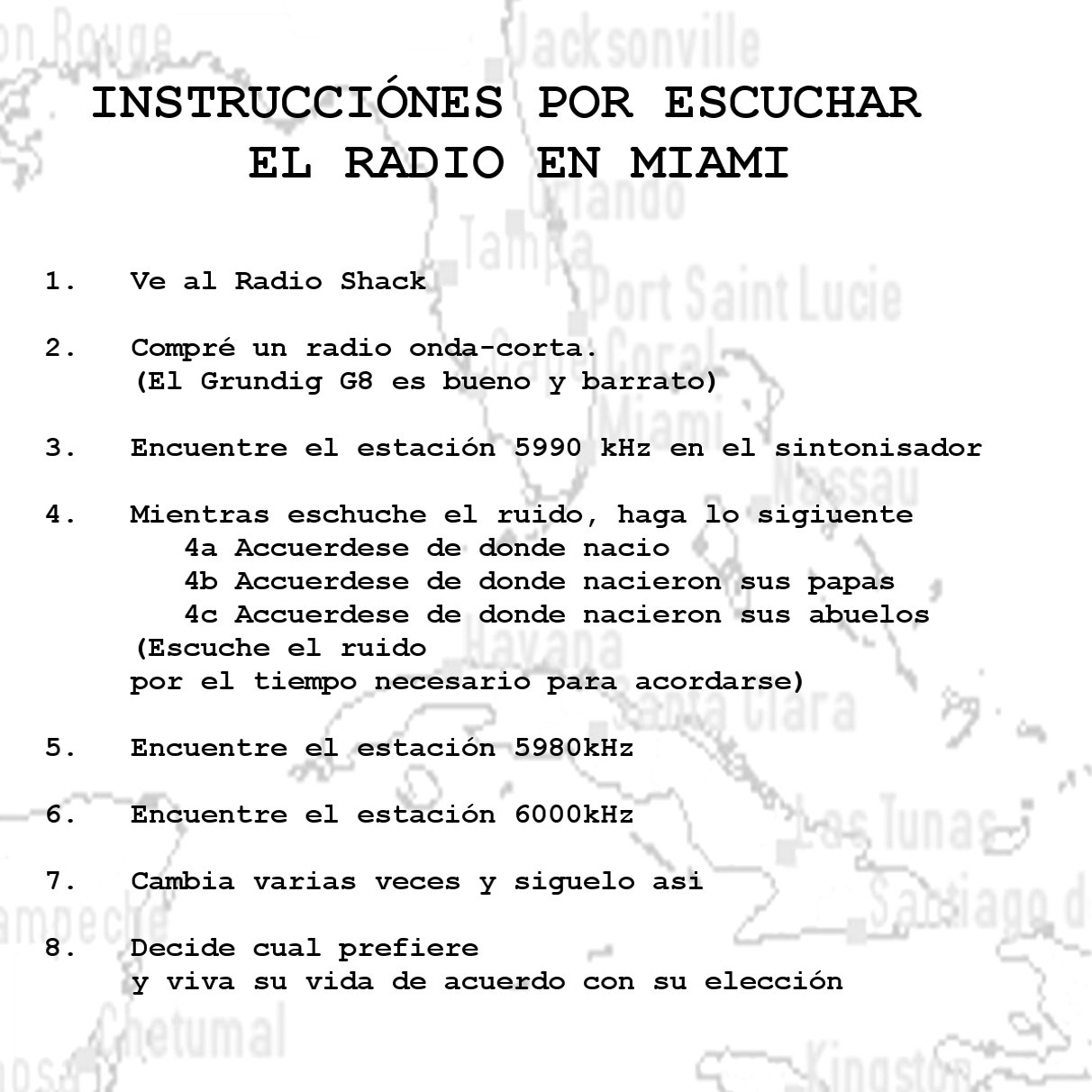
| So, that's one thing I'm doing, these instructions, but the big thing this week is the Lecture on Democracy, which is in that next room, the physical pieces, the speakers. And I have to finish the soundtrack which has to go through those speakers. || Can you tell me about Lecture on Democracy? || Yeah. I did a version of this piece last year called Lecture on Democracy as Word and Brand at the invitation of Carin Kuoni from the Vera List Center at the New School. She was organizing this show called Branding Democracy. So I had some conversations with some students about the word “democracy.” The conversation with the students took off from this performance that I have done with many audiences called Words that should be abandoned or repaired.i I ask people about words that are damaged. I think democracy is such a broken, damaged, abused word. I talked to the students about that, and we didn't get such a good recording the first time. This was at the Parsons gallery, where the acoustics are very wet. So, I held another conversation in a classroom.
In my mind, the intention was for those recordings to be one channel, the fora, on these four speakers that were spaced within the four circular benches of Liam Gillick's installation that was in the gallery during the show. And then I had this big loudspeaker that I called The Voice of Authority, and I imagined that I could set up a dialectic between the kids talking about democracy and the pronouncements of the Voice of Authority. |
[IMAGES 2 – speaker layout for Parsons piece, to be scanned]
| How'd that work out? || Two things happened. First, the conversation with the students was pretty far reaching; it didn't all lend itself to being placed into the fora, nor was it sufficient for the fora. So, I brought in a lot of other material that had to do with uses of the word “democracy”—presidential speeches, history channel documentaries about Andrew Jackson, and recordings from other documentaries. || Why Andrew Jackson? || Jackson really shaped the idea of the presidency and the idea of democracy in the United States. || What were the other documentaries? || I used a lot of source recordings of Ed Bernays from Adam Curtis's The Century of the Self. Bringing in these other recordings broke up the neat contrast of talk and pronouncement that I had in mind. I still had this dialectic between the fora and the Voice of Authority— || Were they overlapping? || Oh yeah, total noise...

... but so the other thing that happened was that I started looking into the history of the word democracy, and what struck me was that democracy was a modern English word. If you look at the first citations for democracy in the OED, they are from the 16th century and it's democratie, which was a direct transliteration of the classical Greek term. And they would use it like a foreign word, like in italics next to the English phrase. “Democratie, or the rule of the commonalitie.” Then in the 18th century, the word democracy takes on a life of its own within political philosophy, becoming a banner of republican revolutionaries, so that by 1848, democracy is a common word that means either government by the people OR the politics of the Democratic Republican Party of the United States. That is, the party of Jackson, which later became simply the Democratic Party.

So, I started thinking about how democracy is a modern, American English word. The myth of the word democracy is that it represents 2500 years of unbroken tradition stretching back to ancient Greece. And, if you look at ancient Greece... I should say, if you look at our inheritance from ancient Greece—Plato's Republic—democracy is not the ideal of Greek politics. The ideal is the benevolent rule of the philosopher-king! Democracy is one stage of a vicious cycle or is transcended by the rise of the philosopher-king. Did you read the Republic, Freddy? || Of course || How do you explain the cycle? || The honorable. The oligarchs. The people. The demagogues. But it’s not set up as a vicious cycle really, more like a cycle of birth and death. || I dunno. To me it’s a vicious cycle. You start with the autocrats, who run shit. Then the autocrats, they have kids and families. They go into business, form alliances, and those become the oligarchy. Then the people and the oligarchs fight it out. || That's the class war that Plato identified, and lived through, between the oligarchs and the demos. || Well, whatever, so Plato had a different version. This is my 20th century version of it. So, the people want to get power from the oligarchs and they distribute power among themselves, creating democracy. Then the rich people who were ousted struggle to recreate oligarchy, and so the people rally around the demagogues, the heroes of the people, to protect democracy. And then the demagogues become the autocrats of the next cycle. || It's not quite Plato, Lex, but it makes sense. || Andrew Jackson, George Bush, Abraham Lincoln, Obama, they're all demagogues. || I like that you have two Democrats and two Republicans. || Yeah, no party has dibs on demagoguery. And demagogues repeatedly reappear in a democratic society. And the power of any demagogue is torn apart by the oligarchs, so it goes on and on, this vicious cycle. The only form of politics outside this cycle is the ideal, is the benevolent rule of the philosopher-king. || I've lived under that! || How was it? || It was great, but eventually you have to go. || Why? || That's another discussion. | [IMAGE 5: Raphael, The School of Athens. http://commons.wikimedia.org/wiki/File:Sanzio_01.jpg ]

| OK. So what I was struck by is that our idea of democracy is not identical with the Greek notion. And the Greek word has not come to us through an unbroken chain of use from the Athenian polis. It was an insertion, like karma. The word democracy was inserted into our language 200 years earlier than karma, so we've assimilated it more completely, but the process is similar. A word comes from a foreign language, and as we use it, its development is shaped by information about the original use. It’s easier to see this with karma, which we can all agree is a 20th century American word. We use it and understand it in 20th century American ways. Of course, it does correspond, in sound and in some of its connotations, with a Sanskrit word. So, people who want to use it seriously can look at its use in the sutras and the sastras and the Vedas and bhyasas, and that informs its meaning, but the term spoken on so many tongues is a modern American English word that comes from California, not the Sanskrit term. Democracy works the same way. Ancient Greek informs it, but the word is a modern creation of English Radicals, French Republicans and their ambitious American descendants. Did that answer your question, though? || I can't really remember my question, Lex. || Oh, so we're still at Parsons, right? || Yes, and you were overusing the word “Dialectic.” || Better dialectic than dialectical no? || No ideas but in things? || Yes, but verbs trump even nouns, so I'll tell you what I did. |
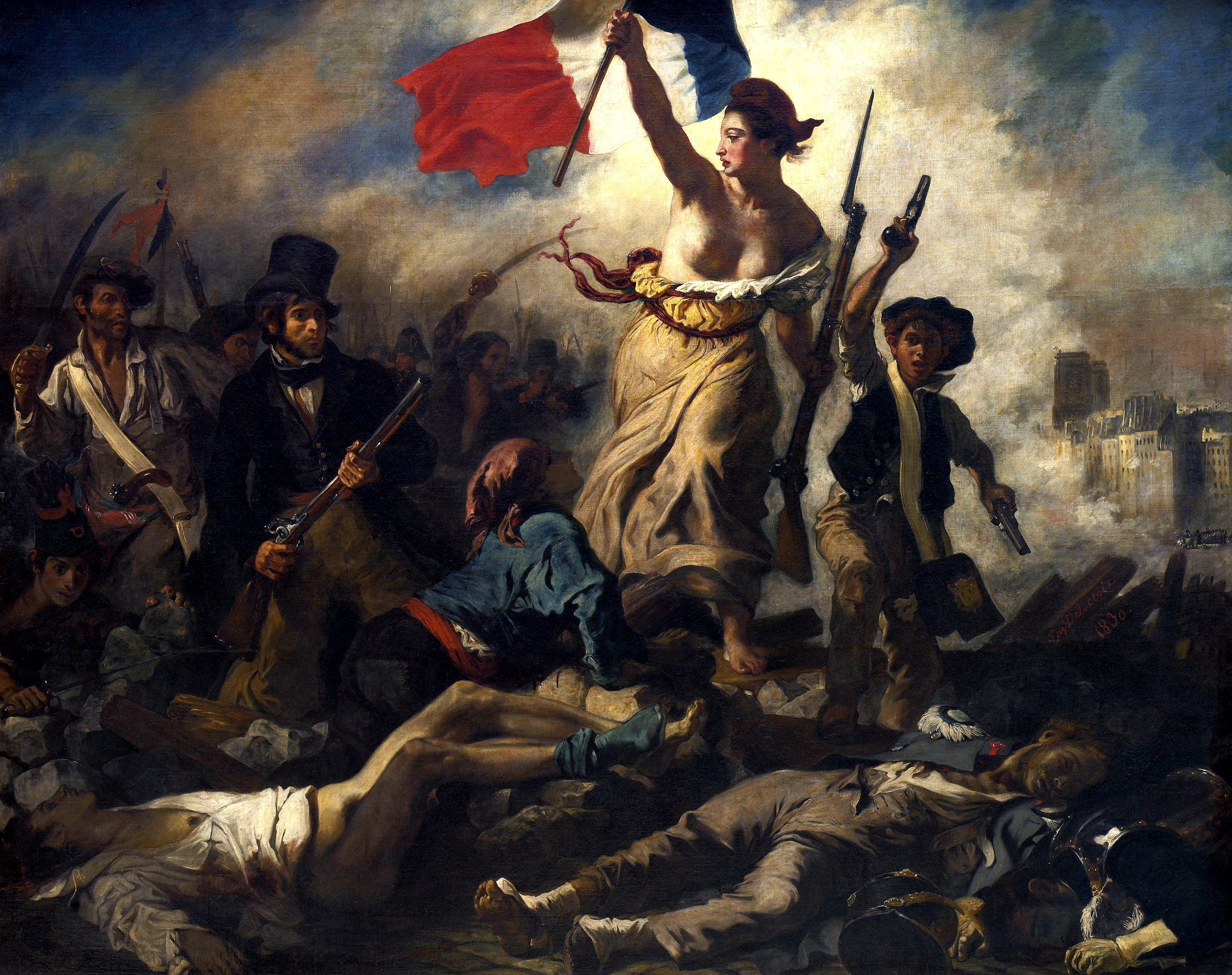

| What did you do? || I presented a work-in-progress version of this last December, where I have the Voice of Authority and the fora playing the soundtrack and I am delivering this lecture on the history of the word democracy while buried under all this sound. || And the lecture is quotes, or your own writing? || I wrote the lecture, yeah... but nobody could hear it. And that was the point. I'm up at a lectern reading and nobody can hear me under this soundtrack. || So your performance is this reading of an inaudible lecture while the soundtrack occludes you. || That's right, except you don't need to use a visual metaphor, Freddy. || Isn't your metaphor—burial—visual? || Burial is more than visual. Blind people can understand burial. Anyway, people didn't like me buried alive by the soundtrack, so I redid the piece, tightly composing the soundtrack which was not quite finished in December, and I added a third channel of sound. That channel was a broadcast over radio of me reading my lecture. People were provided with little radios with headphones so they could tune in or tune out of my reading voice as they wished. [IMAGE 8: Jan 21 Lecture at parsons ]

For that lecture at Parsons, I had to relate it to branding. That was the weakest part of the whole piece, and that was why I first went out looking for historic recordings and not just the conversations. Why I included Ed Bernays, and I was looking for recordings of Charlotte Beers, the ex-Ogilvy & Mather exec who was the Undersecretary of State in charge of selling the Iraq War. I couldn't find any recordings of her so I put in some recordings of David Ogilvy. I really wanted Ms. Beers for the Voice of Authority. Couldn't find anything in C-Span archives. I even asked a friend at al-Jazeera in DC if they had anything! || And in this one you're not talking about branding at all? |
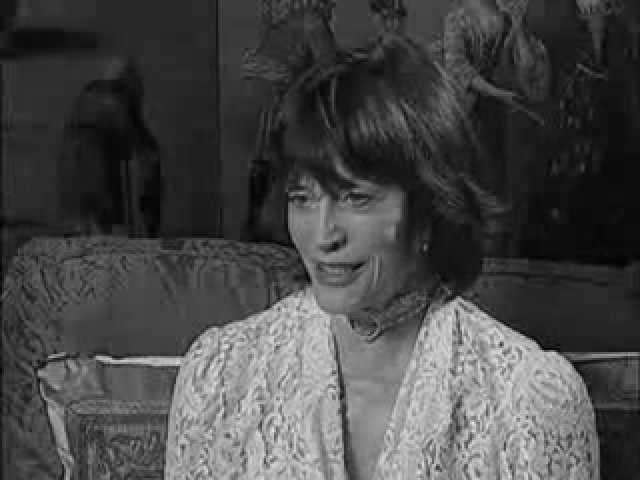
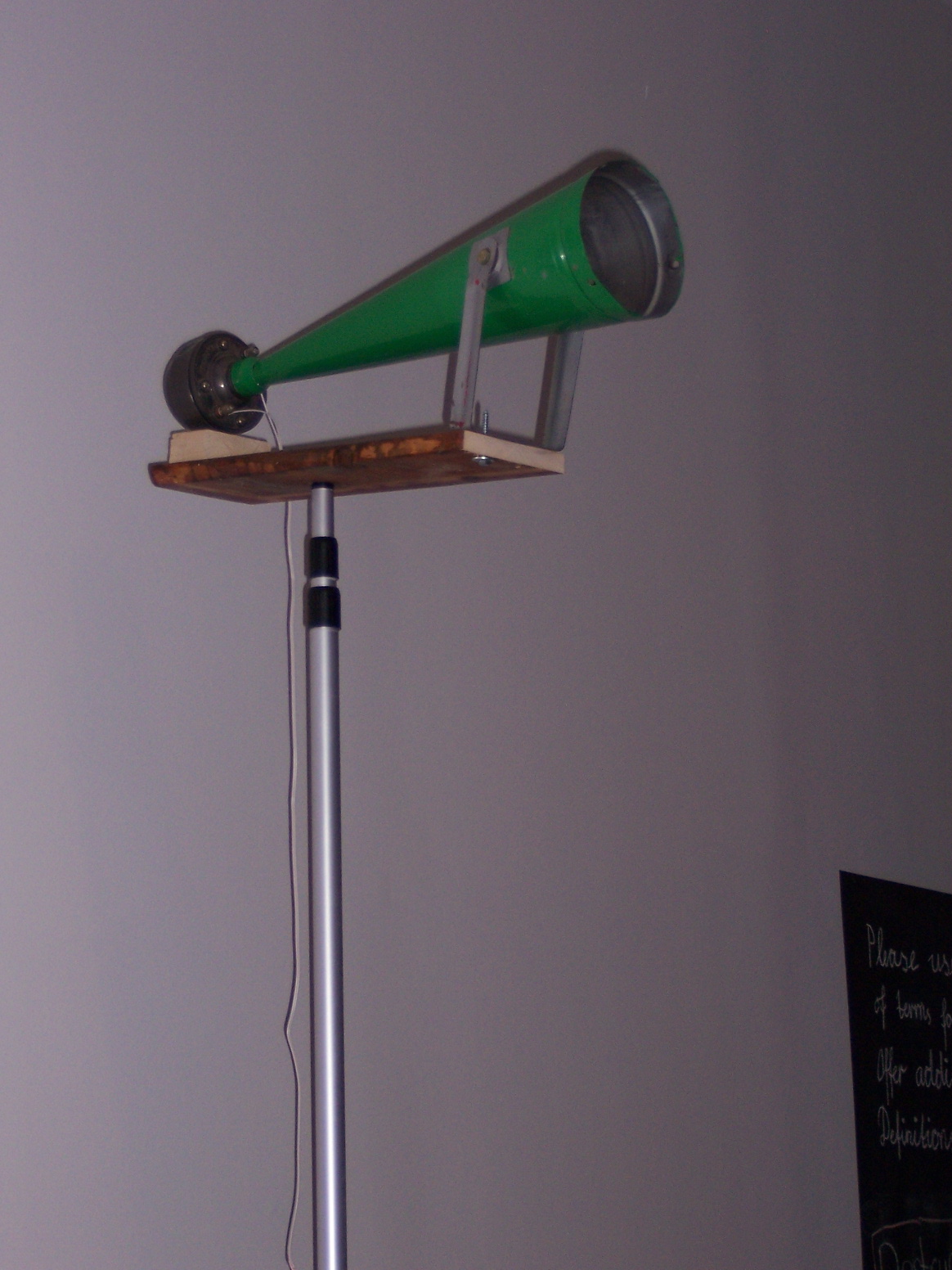
| No, just democracy. So for this one in Buffalo, I'm thinking that I won't use these historic source recordings and I'll just make myself the Voice of Authority. I'll have the students in the fora and I'll shout at them from the loudspeaker. || Where are the teenagers from? || They were 11th graders from Tapestry High School in Buffalo. |
[IMAGE 11: From conversation with students. To be supplied by Sean Donaher]
| So, Lex, what do you hope that people will experience when they walk into it? || I dunno... What do you hope for? || When people walk into your piece? || Yeah, why should I hope anything, Freddy? What kind of question is that? || I didn't say you should hope for anything. I just asked what you did hope. || What do you hope, Freddy, when you write anything? || I hope that people will read it. || No you don't. || Yes I do. || I don't believe you. || You might be right. I've been asking myself that question a lot lately. || Why do you ask yourself that? || To think about my intentions more clearly. || And is intention a hope? || I think your hope is buried in the intention. || Hmm... Well, y'know I'm a Buddhist. || So you give up hope. || Yes, Buddhists don't have any hope. || (Laughs) I think you try not to have hope. || I used to not even write the word hope. I struck it from my vocabulary... but that's been impossible to stick to THIS YEAR. || (Laughs) Yes. You could actually go to jail now for not having hope. || A thought-crime || We should do that tonight, find a book and cross out hope wherever it appears. || Let's do it! || What book should we use? || Audacity of Hope?! |

| So, what year did you work on this project? || I'm doing it this week! || What year did you originally do the lecture at Parsons? || Oh, December 2008. || Do you find it hard to revisit work that you've finished already? || Well this is a totally new version. It has a new source recording. It just has the same physical set-up. || And when you edit sound, how intentional are you with the overlapping of the sound? Because your work is densely layered, I wonder. || Well, it depends... It really depends upon how you are editing, because the recordings are either flowing or they are built. Does that make sense? || Mm-hmm… || When I am putting blocks into place, little sound objects, then I'm intentional in a predetermined way. When things are flowing, then I am intentional in an improvisational way. It's all running and you keep what sounds good. It's outside your control. |
| Do you have any other projects that you are working on? || Well, I have other stuff || You're traveling a lot this year || Yeah, I'm traveling all the time, with An Atlas and now with ((audience)) but really what I want to talk about are past conversation pieces. || Oh yeah, we were supposed to talk about conversation. || My first conversation piece is really King Annex. You wanna see a picture? || Yeah || Where's the picture? Maybe its in the slides... || What's the King Annex? || The King Annex was a building.. but I can't find the picture... Where's the picture? Oh, this is a picture of The Writing Station. That was another conversation piece. Let's just talk about that first.
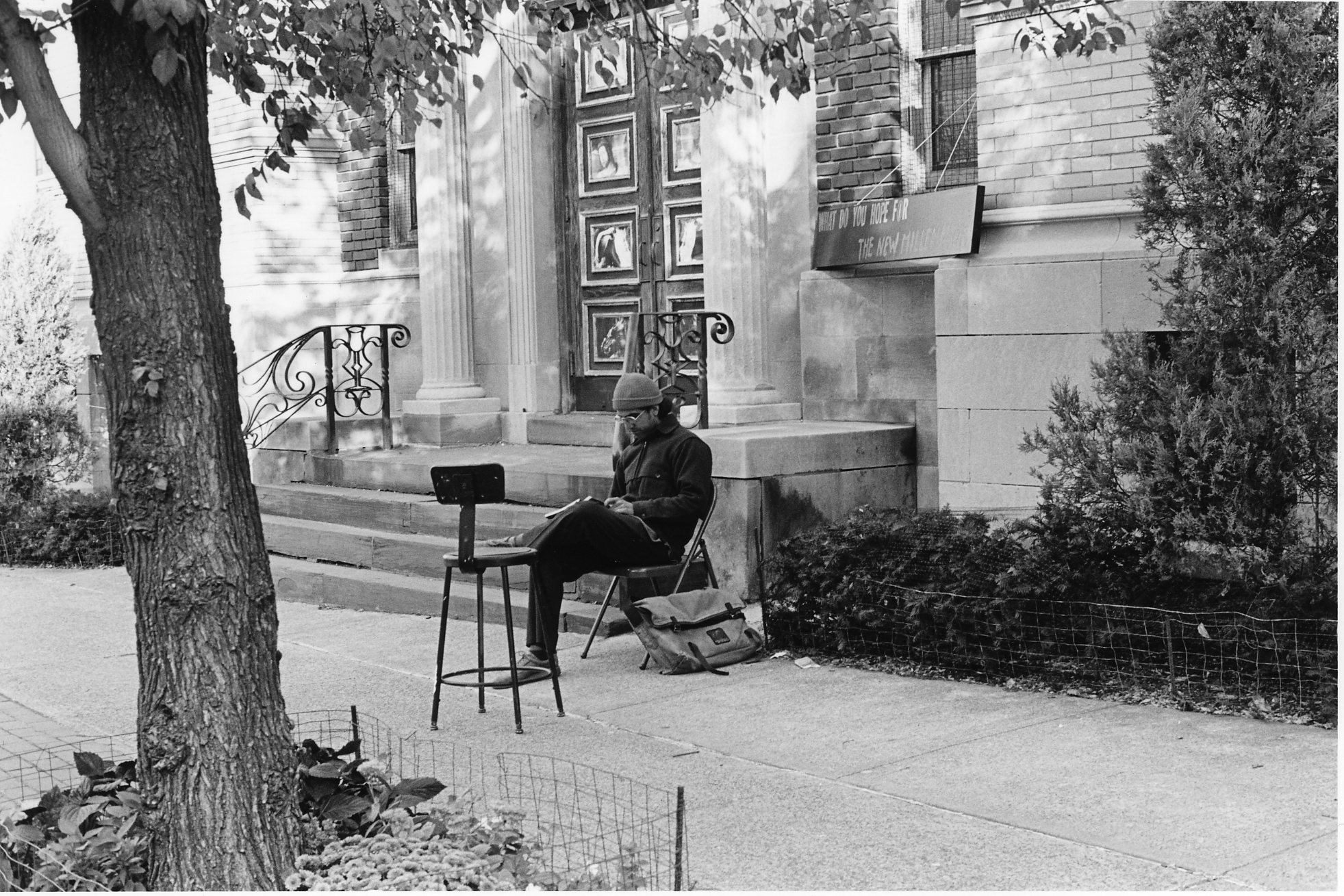
I sat down in front of this church, this abandoned church, and I invited people to sit and tell me their hopes for the new millennium. || Where was this? || In Albany. || And I would just sit there with a notebook and I had two chairs and people would tell me what they hoped for. || Did you record them? || No, I was translating, I was honing it down, I would listen to them and boil down their talk into a statement, into a hope! || It all goes back to hope! || Yeah, because I'm a Buddhist and I don't believe in hope, but here's this sign I wrote, “What do you hope for the new millennium?” || What brought this about? || Well, I was so disturbed by the Y2K doom saying around the new millennium. And, I felt like we needed hope. My brother had just died. I started this right after my brother died. And then after I started it, N30 happened, which was such a hopeful event. And I just gave into hope. I needed hope. || So then what did you do with these statements? || I turned them into these prayer flags, which I printed in a storefront. And I made a proposal to the City to hang them on Madison Ave in Albany... ||
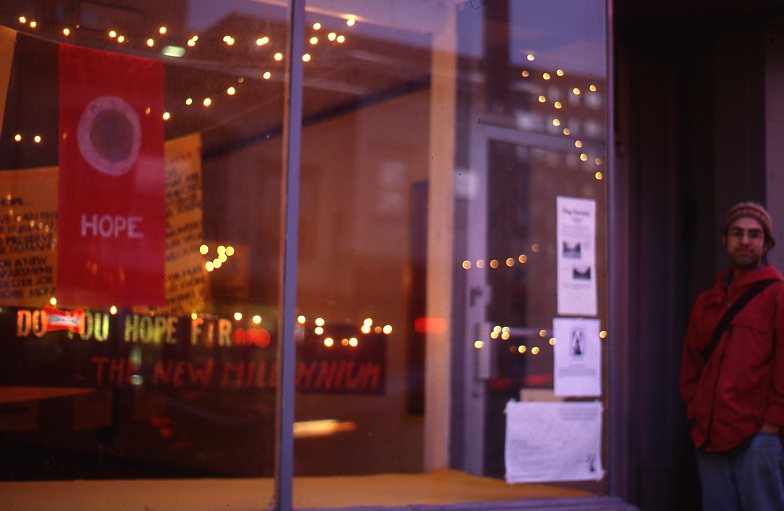
So are these the pictures of the King Annex? || OK, so it’s a building. || It was my office. I was going to write memos from it. || Is it made from slabs of concrete? || It’s made to look like slabs of concrete. || Oh, so it’s really just chipboard? || With concrete troweled on. || And a plastic door. || The college had taken over one of the dorms, the King Dorm, and turned them into offices. The King Annex was my protest against that takeover. The Annex just contained one desk, from which I would write memos all day. Most of the memos I wrote... They were on paper, delivered by Damien, who was my mail-boy. || Who is Damien? || Damien Flores. He used to come in every morning to tie me to my desk, and pick up my outgoing mail. || How long did you do this? || Just one week. || Monday through Friday? || What do you expect? Its fucking freezing cold! Do you see the snow? Inside the office! Ice! I'm wearing insulated cover-alls and Sorel boots! || So, you were wearing insulated coveralls and writing memos all day? |
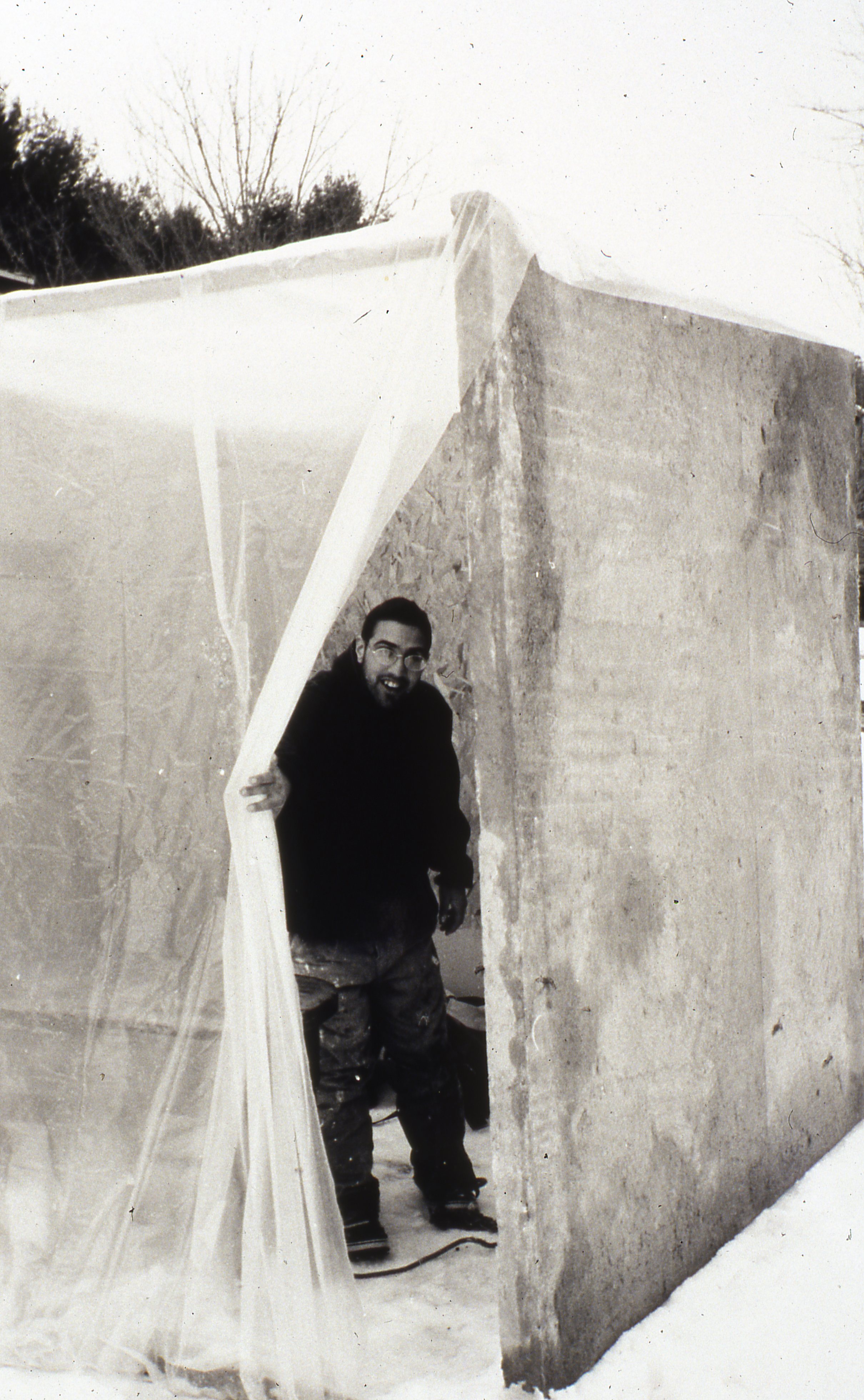
| No, I didn't write memos all day! That was what I intended. And, I did write memos every day to IT to try to get internet there. We didn't have wireless back then. Actually, no one had internet on campus, EXCEPT for the King building. So, I was asking for an Ethernet connection from King to my office. || And, who did Damien take the memos to? || To the mailroom, thence to their various offices. || Did you just say “thence”? || Yes. || Anyway... did you get any good responses? || Well, I built up a daily paper trail with IT, because they kept writing back saying, “We're going to come and get you your internet connection!” But the memos really became irrelevant. The main thing at King Annex was that every day people would come and they would sit and talk with me. || Of course! Who wouldn't? || And they would talk and talk for hours! || Was this the first time you had used conversation in your work? || No. Before this I had been using tape-recorders for poetry performances and sound collages for the radio, which used monologue, reading and conversation. I was already more interested in talking than writing, but this project marked when I first understood conversation as a material, and when I decided to use conversation as a material. |


| So this led you to The Writing Station? || Yes, The Writing Station comes straight from King Annex. || But it was a few years later? || There were two years in between. King Annex was '97 and The Writing Station was in '99. || What were you doing those two years? || I had done little street art pieces, propaganda against the prison-industrial complex, but mostly I was busy teaching kids, and my artwork was confined to my work as a teacher, writing plays for kids, painting theater backdrops, making costumes. || Did you have a theater background? || No, but I was working with 8-12 year olds. These were basic human rituals. || Where was this? || At the Albany Free School. I taught there for two years, and I had just stopped teaching that year and I thought back to King Annex, and the way people would just talk to you if you sit down and offer them a seat. So, the Writing Station was very successful. The subsequent part of that project, Millennial Hope Flags, wasn't so successful. I printed these flags and tried very hard to get them hung on the lampposts of Madison Avenue in Albany. Sarah Cunningham of the Albany Center Galleries was very supportive and teamed me up with an engineer to work on the hanging system. She had found me the storefront where I produced the flags. In the end, they were simply exhibited at her gallery. || Do you still have them? || No, we burned them on the banks of the Hudson on March 21st, 2001. ||| So this led to the Vehicle? |
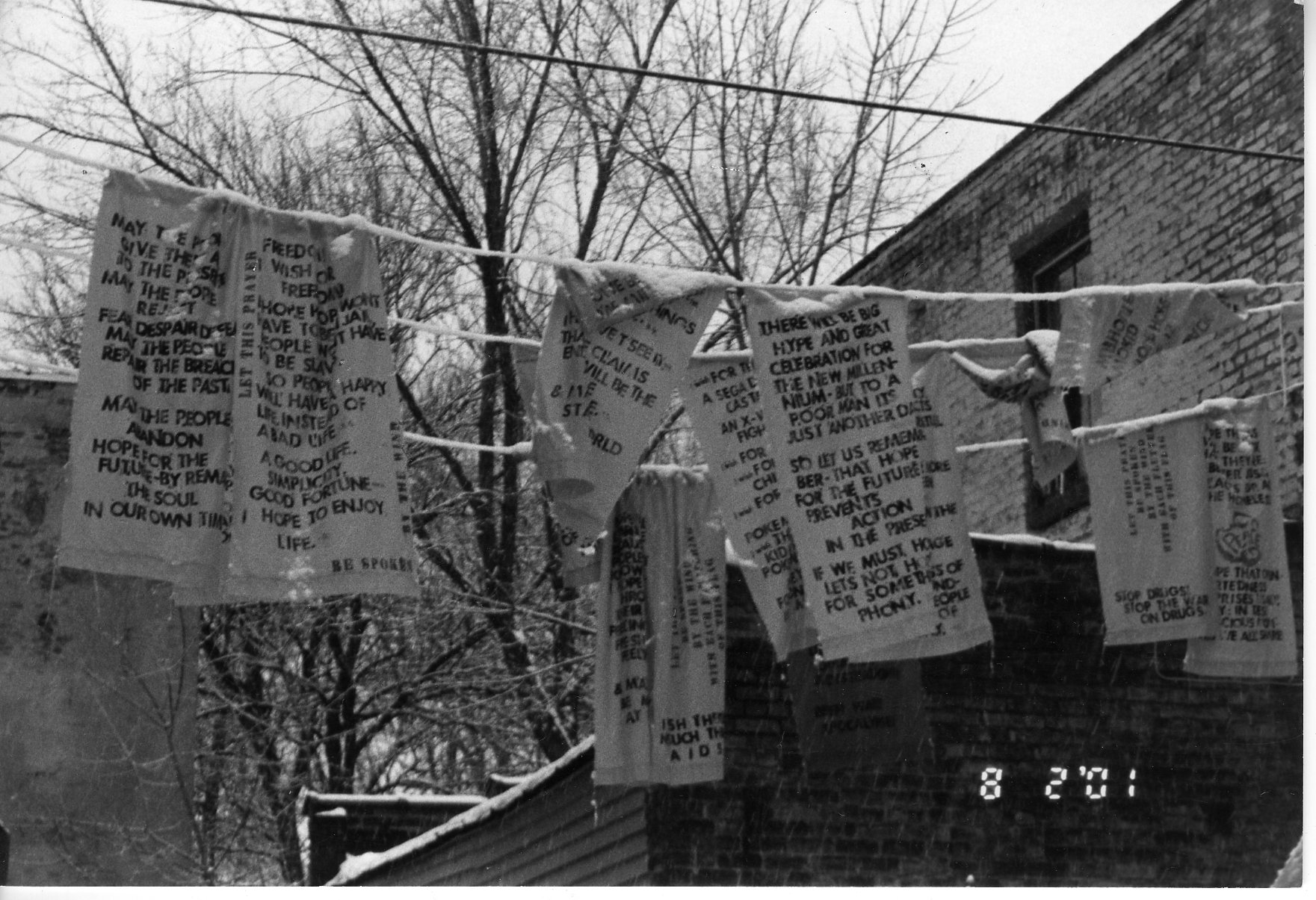
| Yes, after the Writing Station, I thought I could reproduce the procedure of offering someone a seat. I took two rolling chairs and attached them together and extended a shield over it to keep the rain out. |
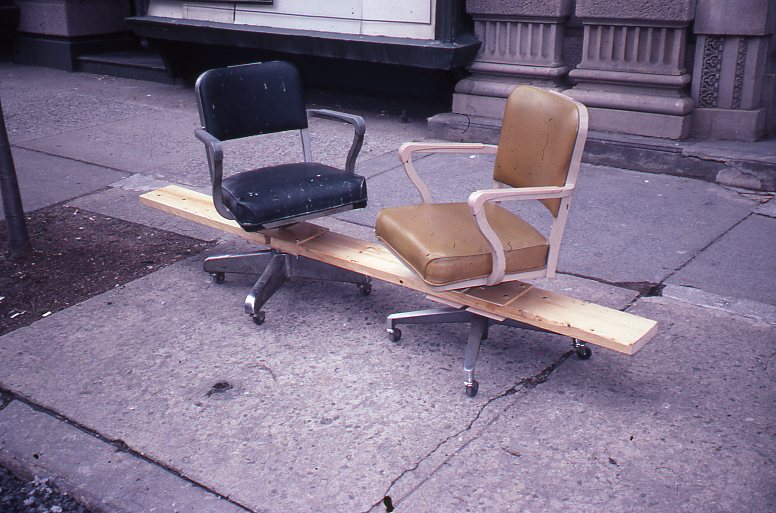
| A Vehicle for Conversation. || I pushed this Vehicle around for two weeks and invited people to talk to me. Bree took some great pictures, but I don't know where they are. I hate pictures, you know. || I know... so how did it work out? || Not like I expected. || Not like you hoped? || That's why hope is the problem. People came, sure, and they talked and talked. I had like 50 hours of recordings, but I never had the same kind of “deep” conversations that I had had in King Annex and The Writing Station. || Because this vehicle was a spectacle? || Could have been because of the Vehicle. Could have been because of the microphone. Could have been because I was looking for something, not wide open. In any case, I had to deal with this unexpected outcome, things not working out how you want them to, and that led me to polyvocality. |
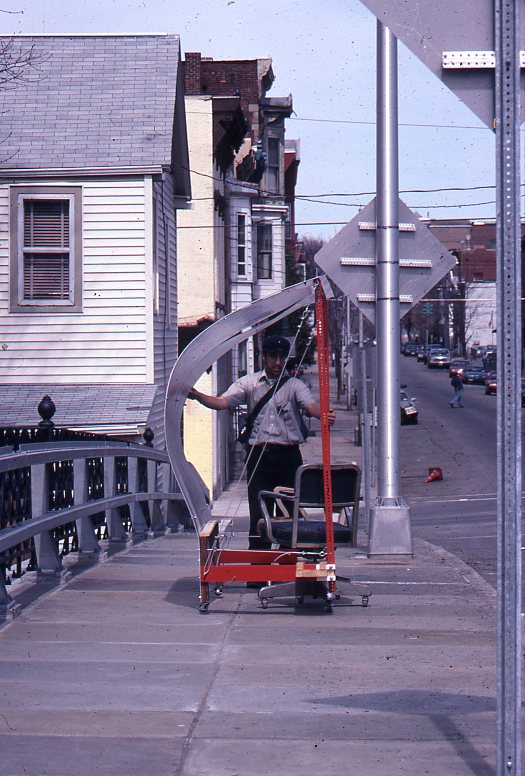
| The four-voices at once thing? || It's not always four things at once - if it were, I would call it quadravocality. Polyvocality just means more than one. This interview, which is being formatted in non-attributive form, is polyvocal. And Sound Generation has 24 voices, that's polyvocality too. Since the Vehicle project, all of my writing, and my radio compositions, and the Lectures have been informed by polyvocality. || So, boil down polyvocality for me… || Here's how it works: I write something, from my own head or my own heart or my own hand || There's a difference? || Certainly. The nerves are recorders, everything we see and hear leaves a trace on them. Before we can write from the heart or the head we have to empty the hand, which holds the day's fresh traces. || Gotcha. || So, I write something, and then I present it to others to record their voices, their interruptions, their feedback, their challenges. All writers go through this process as part of revision. But with polyvocality, those inputs don't just serve to revise my clear, authoritative writing - instead, they are layered on top of it. For example, with Lecture #1: Regarding Sound as Art, I wrote notes for a lecture about sound as material, and presented it from the notes to Ken Montgomery, Tarikh Korula, Andrew Fremont-Smith and Peter Lew. The final piece is a collage built from that recording of my lecture, a number of sound objects and musical samples, plus loops and tangents from that original audience. || And that's for four channels? || No, that was stereo, because I wanted it to be on the radio. So, it’s totally unclear. You can't possibly make out everything. Comprehension depends upon the cocktail party effect, where you pay attention to one voice at a time and exclude the others. I can't control which voice you pay attention to, or if you pay attention at all. So, what do you think, Freddy? || Well, when I was listening to your new Lecture on Democracy, I could make out the voices quite distinctly. || Yes, well, at Parsons, the acoustics were so wet, that the overlaid voices often turned into a reverberant mush. Composing for the gallery is nothing like composing for radio, especially web-radio, where the operating assumption is that people will be listening on headphones from an mp3 player. I am adding a lot more space and time around the samples in this version, since it is essential that they are not simply sounds but words. || Why should it be essential in this particular case? || This time, well, I feel like I might want to get a message across. || You're becoming an authority? || I don't think so. Part of it is that these pieces about “democracy” were motivated by the abuse of the word during the Bush years. I can't help but catch the ding-dong-the-witch-is-dead euphoria. I feel a little, shall we say, better about democracy this year. And so I don't want to just put together this clash of opinions that points out the meaningless of the word. I feel it would be more useful to really say something about democracy. || So now you think the word can be saved? || No. Certainly not. The word is damaged beyond repair. But now I feel like being more careful with its remains while we render them in the search for what shall come after.
i Described in “Regarding Virus F and Virus D,” Perspectives on Anarchist Theory, Fall 2005. Archived at http://nadalex.net/projects/images/virus_f_virus_d.pdf